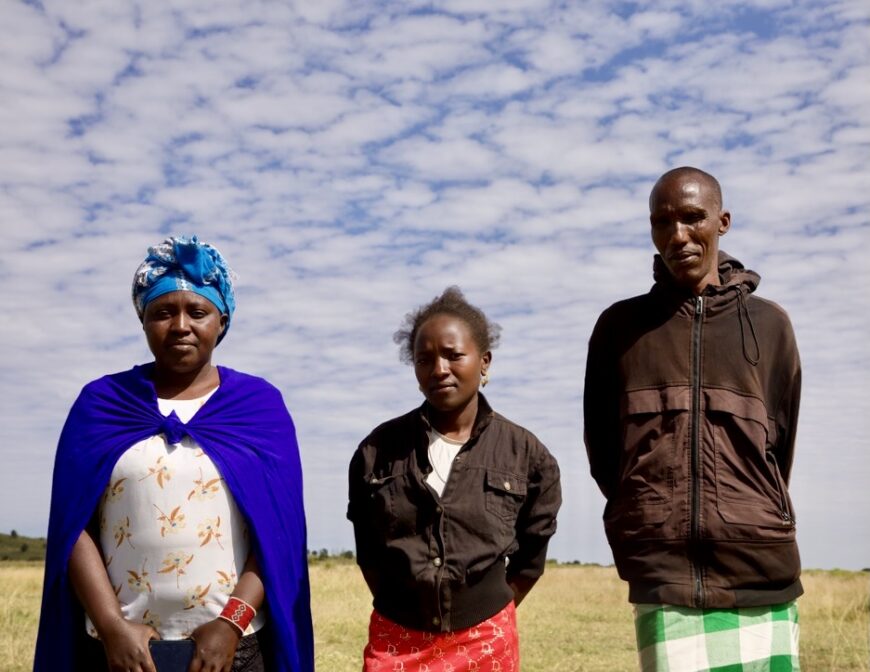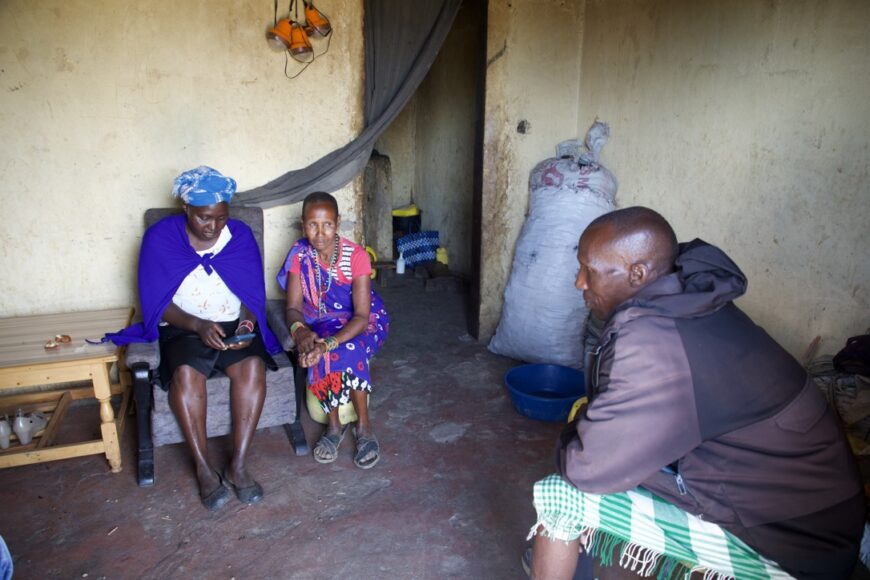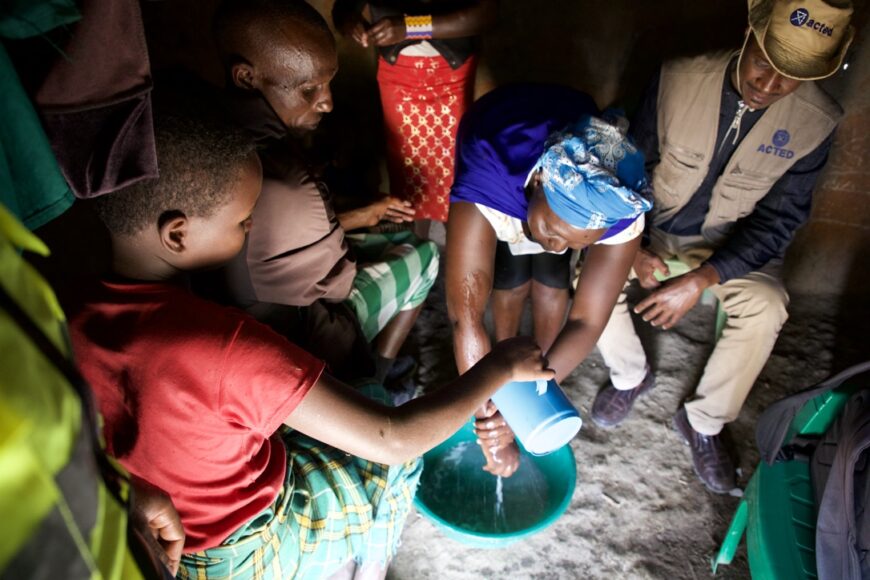Samburu County, located in northern Kenya’s Arid and Semi-Arid Lands (ASALs) faces some of the most significant challenges related to inadequate Water, Sanitation, and Hygiene (WASH) infrastructures. Strained water availability due to drought, nomadic lifestyles of local populations, limited hygiene awareness, and poor sanitation facilities further complicate the context, leading to high rates of waterborne diseases like cholera and diarrhea. In some regions of the county, as much as 98% of the population continues to practice open defecation. Addressing this issue not only requires improving access to latrines, but also changing mindsets, engaging pastoralists in dialogue about the health risks of open defecation and how mobile communities can incorporate improved hygiene practices.
Acted’s Grassroots Intervention in Lesuwa Village
From the training, I gained knowledge on how to sensitize the community on hygiene and sanitation and how to construct latrines. Before, every time I would do sensitization, there were always questions on where community members would get the materials [to build them]. Now with the training from Acted, I am better informed on how to construct basic latrines that do not require complicated materials.

With funding from L’Agence d’Urbanisme et de Développement du Pays de Saint-Omer (The Saint-Omer Urban Planning and Development Agency), the intervention from Acted provided a comprehensive three-day training to Community Health Volunteers (CHVs) Juma*, Mercy*, and Kioni* to improve their knowledge on hygiene and sanitation and equip them with effective facilitation strategies to sensitize their community. Over a two-month period, they have conducted door-to-door household visits in the village to educate families on proper handwashing techniques, the best times of the day to wash hands, the importance of drinking clean water, and how to perform sterile breastfeeding. Additionally, they were trained in how to construct outdoor pit latrines using natural resources already available in the environment, reducing the costs and logistics of constructing them. Before the project, the CHVs lacked the capacity to bridge this gap due to insufficient resources.
When Acted came to train us, we didn’t have good knowledge on handwashing. Before, households would share the same basin for all their handwashing and wipe their hands on their clothing, which is not sanitary. Now, with the training, we got the knowledge to wash hands using soap and running water**. We make sure to rinse properly and air dry our hands naturally without cloth.
Changing Narratives Around Hygiene
Juma often encountered trouble on engaging his own community on the importance of proper hygiene practices. Acted’s capacitation programme has better empowered him to address the gaps in hygiene awareness in Lesuwa. In time, he is hopeful that the increased awareness from the intervention will reduce preventable waterborne diseases in the community.

Engaging with pastoralists is difficult. Since they commonly practice open defecation, some of them are resistant to sensitisation because they move a lot and think they don’t need latrines. But now, with the training, we have received strategies on how to encourage them that using latrines is a good thing. Most of the diseases that affect our community come from poor hygiene practices, and they are preventable. Using latrines will help us avoid this disease.

To address the complex issues of open defecation and hygiene awareness, which are often culturally rooted in long-standing pastoralist practices, localized and community-led response is essential. Acted’s project emphasises the importance of putting local leaders who best understand the context of their own community, such as Juma, Kioni, and Mercy, at the forefront of designing and implementing interventions. Acted’s assistance of providing capacity building and training will empower them to facilitate change in their village that is more sustainable, long-lasting, and impactful.
*Names have been changed to protect privacy.
**Running water at the household level in Lesuwa Village is usually in the form of leaky tins, as running water taps are scarce.
